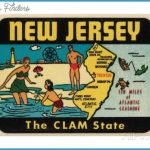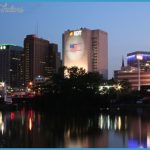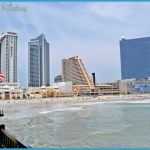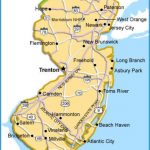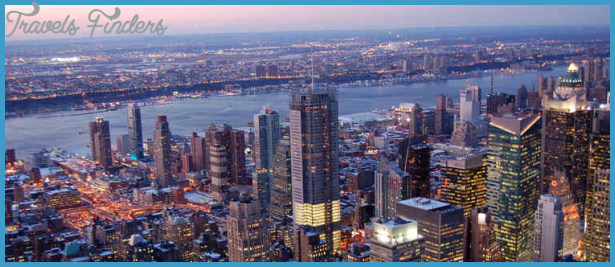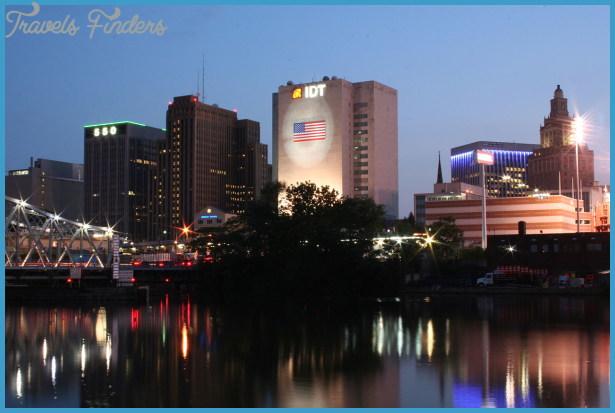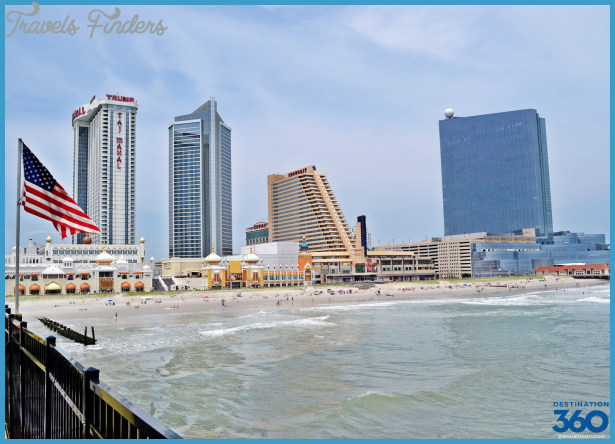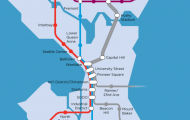New Jersey Latinos in Government
Latinos have gradually become involved in politics in New Jersey. In 1985, through the Latin American Civic Center and the Hispanic Business and Professional Association, Colombians and other Latinos in Hackensack, founded and supported a Latino political committee to endorse city council candidates who showed a concern for Latino issues. Consequently, a Latino was named as an alternate to the city planning board, the first Latino political appointment in that city.
The first important Latino political breakthrough came in 1986 with the election of Robert Menendez as mayor of Union City. Menendez was later elected to the New Jersey State Assembly. He is a Cuban American and a graduate of St. Peter’s College. In the same year David Ferrer, the president of the Spanish American Cultural Association of Bergenfield, was elected a member of that town’s board of education. In the following year Julio Varela, a Cuban and chairman of the Republican Party of Englewood, was elected councilman in that city. In 1988 Gloria Bonilla-Santiago a Puerto Rican social worker and college professor who had been instrumental in the founding of the Hispanic Women’s Task Force of New Jersey and in persuading the state to establish an office of Hispanic Affairs with a Center for Hispanic Policy Research and Development succeeded in getting legislative approval for three Hispanic Women Demonstration Resource Centers in New Jersey. These centers foster upward mobility and economic progress for Hispanic women in the state, and this legislation was the first in the nation to specifically address the needs of Latina women on a statewide level.
Political activities among Latinos increased through the 1990s. An important advance was the election of Mayor Robert Menendez to Congress in 1992, with the help of the heavy concentration of Cubans and other Latinos in Union City and its environs. In Hudson County Latinos held 8 of 87 elective offices, 5 of which were in Union City and West New York. Nadia Colon of Jersey City was a member of the County Board of Freeholders. The county established the Office of Hispanic Affairs. Twenty percent of both the Democratic and Republican Hudson County committees were Hispanic. Latinos were two to one Democratic. Still, only 16 percent of the Latinos in Hudson County were registered to vote, with Cubans forming the most politically active Latino community. Efforts were made to increase voter registration. In 1992, Latinos held 65 of 9,000 elected positions at the state level. Felix Cruz was named director of the Governor’s Office of Minority Affairs.
In 1993 a Latino was elected to the Passaic City Council. In the following year there was a Latino councilman in Hackensack. He and other Latino leaders pushed for better INS rules for migrants. The year 1995 saw Wilfredo Caraballo elected and Nilsa Cruz-Perez appointed to the New Jersey Assembly. In 1999 in Hoboken Nellie Moyeno became the first Latina woman to serve as city council president. Ruben Ramos was also elected to the city council there. He was campaign manager for Anthony Soares, a second-generation Portuguese who was elected mayor.
In 2002 the Latino Leadership Alliance of New Jersey which has 150 statewide political and community leaders met with U.S. Senator Jon Corzine and Governor James McGreevey to urge better health care, amnesty for the undocumented, and more Latino appointments in the state government. McGreevey did appoint Ida Castro to head the state Personnel Department, the Political Action Committee was formed to help fund additional Latino candidates for political offices, and in 2002 Albio Sires was elected speaker of the New Jersey Assembly.
Two years later Governor McGreevey named a Puerto Rican lawyer Roberto Rivera-Soto, who resides in Haddonfield to the state Supreme Court, the highest post to be achieved by a Latino in New Jersey. Then in 2006 Robert Menendez was elected U.S. senator from New Jersey, Albio Sires was elected to Congress, and Silvera Vega was elected to the New Jersey Assembly
Senator Menendez at the Comprehensive Immigration Reform rally, June 14, 2007. Courtesy of the Office of U.S. Senator Robert Menendez.
A New Home
In a poll among Latinos in New Jersey in the 1990s, almost all indicated they wished to make a permanent home in the United States; 79 percent stated that life here was better than in their country of origin; and 90 percent expected the lives of their children here to be better than their own. Sixty percent expressed an extremely strong love for the United States, and only 4 percent reported that the feeling of attachment was not very strong. The percentage of positive feeling about life in the United States was higher among Latinos in New Jersey than nationally. A majority among the Latinos in New Jersey, including noncitizens, reported a stronger attachment to the United States than to their country of origin.



